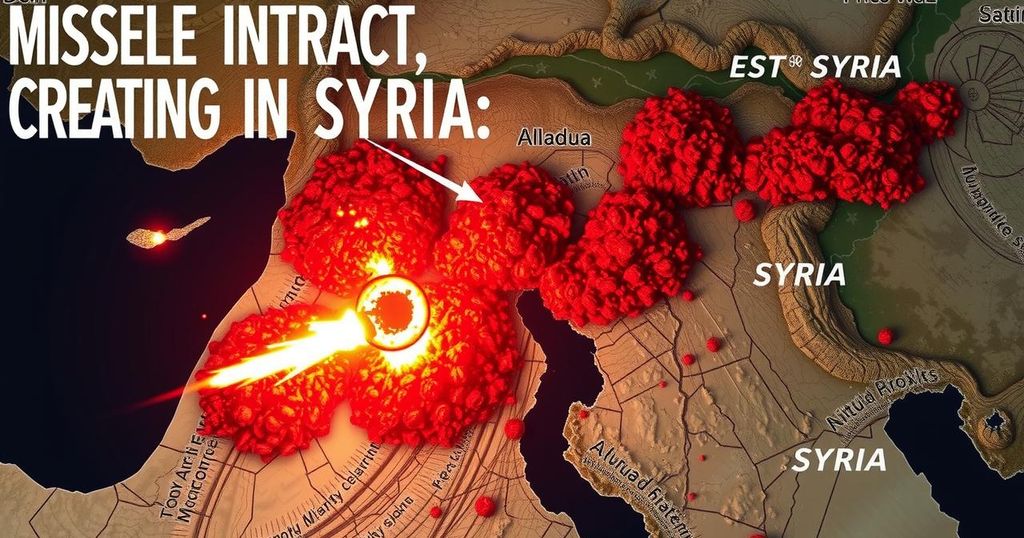A recent Israeli airstrike in Syria registered as a 3.0 magnitude earthquake, impacting areas over 500 miles away and raising serious humanitarian concerns. With over 17,000 military actions occurring in the region since October, questions arise regarding the motivations behind these strikes and their implications for regional stability and international law.
On December 16, 2024, a significant Israeli airstrike in Syria resulted in an explosion so profound that it registered a 3.0 magnitude on the Richter scale. This seismic event, caused by ten missile attacks targeted at military sites, reverberated well beyond the immediate vicinity, affecting areas over 500 miles away. Such a portrayal of military action raises critical concerns regarding its humanitarian implications, particularly in a region already burdened by instability and conflict.
The Richter scale, a logarithmic scale for measuring seismic activity, indicates that even minor earthquakes can lead to severe local effects, especially in tectonically active regions such as Syria. The ramifications of these airstrikes extend past simple destruction; neighboring countries felt the impact, leading to questions regarding the broader consequences for the region. The psychological and civilian toll of this sustained military intervention is a pressing issue that the international community has yet to address adequately.
Israel’s motives for its actions are deeply rooted in a desire for control, particularly following the apparent weakening of Bashar al-Assad’s regime. Prime Minister Benjamin Netanyahu’s military directives emphasize a strategy of observation and dominance, particularly near areas like Mount Hermon. Historical patterns reveal that Israel has historically capitalized on regional instability to enhance its geopolitical power, which raises serious ethical concerns regarding the consequences of such military strategies.
The extent of violence in the region is staggering, with reports indicating that Israel has executed over 17,000 military operations in the Middle East since October 7, affecting not only Syria but also Palestine, Lebanon, Iraq, and Yemen. This drastic escalation prompts critical inquiries into the justifications for such military actions and their categorization, either as acts of war or humanitarian crimes. It also brings into focus the silence of many U.S. social justice activists while American support for Israel persists in facilitating ongoing conflict and destruction.
The recent airstrike in Syria by Israeli forces is emblematic of the enduring tensions in the Middle East. The Richter scale, which quantifies seismic activity, reveals the profound impact of these military operations, extending beyond mere physical destruction to encompass extensive psychological and humanitarian concerns. With Syria in a politically fragile state, Israel’s military actions seem strategically aimed at capitalizing on the opportunity to further its geopolitical interests. The broader implications of sustained military engagement raise significant questions about the responsibilities of the international community in addressing such crises.
In summarizing the events of December 16, 2024, it becomes clear that the Israeli airstrikes have repercussions that extend beyond their immediate political ramifications. Not only do these actions challenge international norms concerning war and humanitarian conduct, but they also underscore the ethical responsibilities of states involved in protracted conflicts. The dynamic between military necessity and humanitarian obligations is increasingly coming under scrutiny as the human costs mount. It remains crucial for discourse surrounding these matters to be elevated within global forums to foster accountability and a pathway towards peace.
Original Source: gvwire.com






